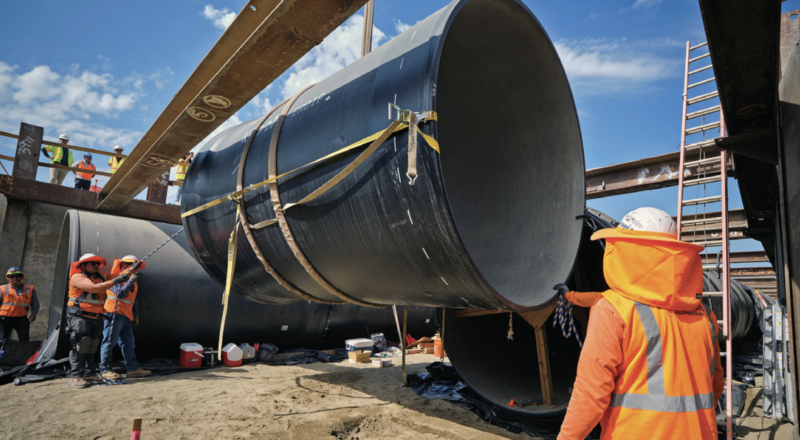The Metropolitan Water District of Southern California’s board recently approved a project labor agreement covering nearly $1 billion worth of major water infrastructure projects the agency plans to undertake over the next five years.
A project labor agreement, or PLA, is a pact between a public agency and one or more unions to require contractors and subcontractors to pay union-scale wages and union benefits, hire exclusively from union-run hiring halls and provide apprenticeships and other worker-training programs. In exchange, the signatory unions promise not to conduct labor actions – up to and including strikes.
Over the past 25 years, PLAs have spread throughout California as building trades unions have increasingly exercised their clout. Most public agencies in Los Angeles County have at one time or another implemented the agreements for some or all of the work they contract out.
But PLAs have been controversial, drawing opposition from non-union contractors and their allies concerned that the extra hurdles and costs make the contracts no longer economically viable for them. And they contend many PLAs increase overall project costs.

The Metropolitan Water District has until now implemented PLAs on a project-by-project basis. According to the agency’s announcement, it used project-specific agreements on several major construction projects in the 1990s and 2000s, including the massive Diamond Valley Lake reservoir that had a construction cost of $1.9 billion, the Inland Feeder project and Lake Skinner improvement programs.
Adel Hagekhalil, the MWD’s general manager, said in the announcement that these project-specific PLAs resulted in a more cooperative approach between the contractors, labor unions and the agency..
This PLA approved by the MWD board on Oct. 11 covers 33 future construction contracts selected from Metropolitan’s capital investment plan, taking in roughly 90% of all the agency’s planned CIP expenditures over the next five years. The total cost of the 33 construction contracts is estimated to be nearly $1 billion.
The PLA also would apply to all construction related to the agency’s proposed Pure Water Southern California recycled water project, which is a partnership with the Los Angeles County Sanitation Districts to clean and re-use up to 150 million gallons of water daily.
“This PLA is a reflection of our commitment to improve communities across the region by providing quality jobs and expanding new opportunities through apprenticeship and training programs, all while helping ensure we’ll provide safe, resilient water supplies long into the future,” Hagekhalil said.
An executive for one unionized construction company that supports this new PLA said he believes the agreement will result in higher-quality work.
“I believe the overall benefit of PLAs is passed down to the labor force performing the work and the project owner who benefits by having a highly skilled labor force performing the work,” said Roy Valadez, estimating manager for Walnut-based JF Shea Construction Co., which currently has five contracts with the MWD.
But an executive with an industry advocacy group that opposes PLAs said the agreements effectively dissuade many non-union contractors from bidding on projects.
“They don’t explicitly say non-union contractors are banned, but every contractor has to pay union-scale wages, hire mostly union workers, and for the non-union workers they do use, the company has to pay into a union-run pension and health plan that the workers won’t benefit from,” said Eric Christen, executive director of Poway-based Coalition for Fair Employment in Construction. “This effectively discourages non-union contractors from bidding in the first place,” he said.
